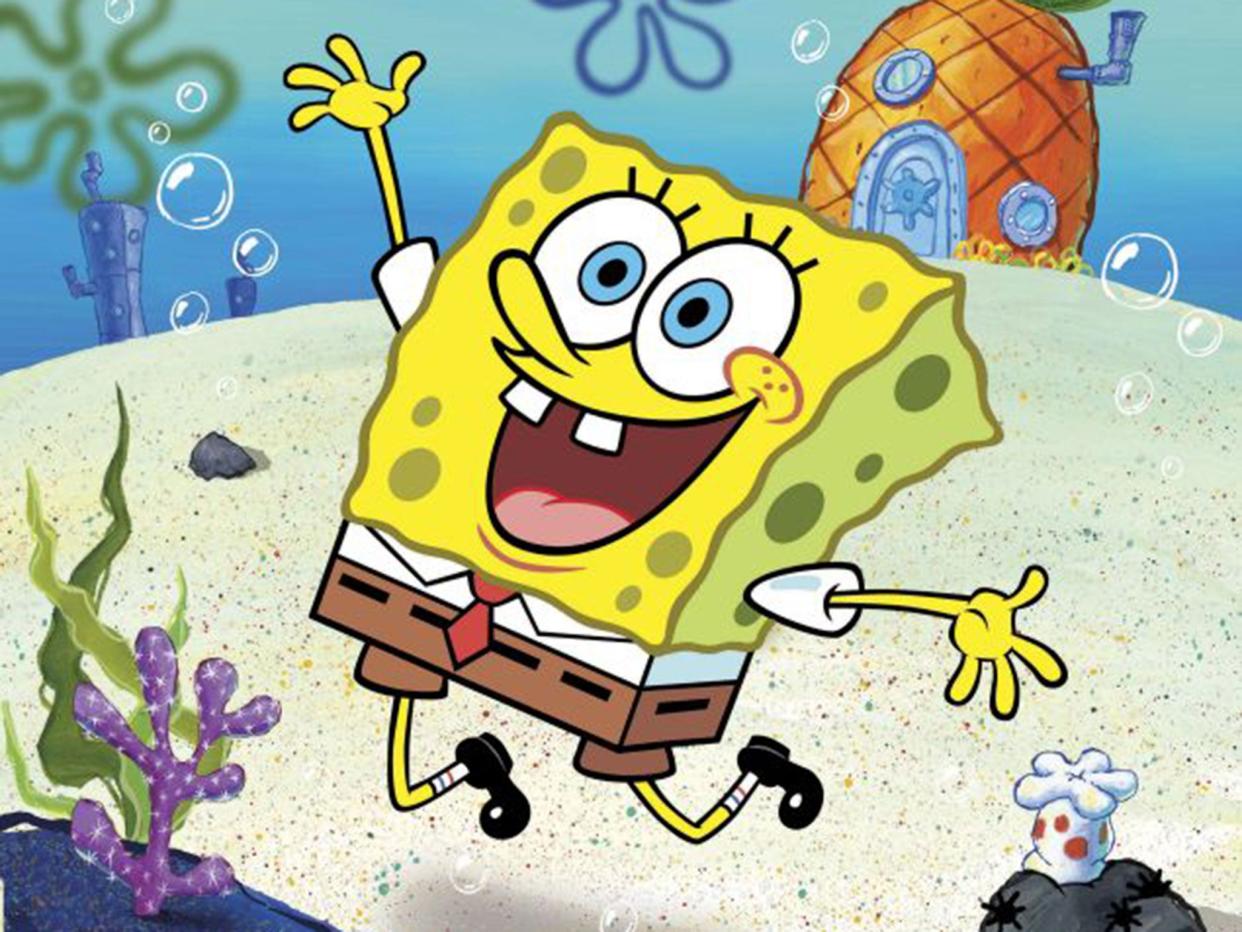Spongebob Squarepants promotes ‘violent and racist’ colonialism, university professor claims

Spongebob Squarepants has been accused of normalising the colonisation of indigenous lands by a professor at the University of Washington.
The children’s cartoon – which marked its 20th anniversary this year – was criticised in a report by Professor Holly M Barker.
She wrote: “SpongeBob SquarePants and his friends play a role in normalising the settler colonial takings of indigenous lands while erasing the ancestral Bikinian people from their nonfictional homeland.”
The character Spongebob is a friendly sea sponge who lives in a pineapple under the sea among the other residents of a town called Bikini Bottom.
Professor Barker believes that this is a reference to the real-life Bikini Atoll in the Marshall Islands in the Pacific Ocean.
Natives of Bikini Atoll were relocated in 1946 so the US military could use the area for nuclear testing during the Cold War, which drew criticism from the media after it was revealed that the inhabitants were left without adequate food or water to prevent them from starvation.
Later nuclear tests left the islands of the atoll contaminated with enough radiation to affect food grown in the soil, which meant the islands’ inhabitants were unable to return, and those who did experienced issues such as stillbirths, miscarriages and genetic abnormalities.
This has given rise to fan theories that the cartoon inhabitants of Bikini Bottom owe their mutation to the testing.
Professor Barker believes that as an American character allowed to inhabit an area that natives had no choice but to leave, SpongeBob showed his privilege of “not caring about the detonation of nuclear bombs”.
She also points out that the cultural appropriation of Pacific culture in Spongebob Squarepants, with Hawaiian-style shirts, homes in the shapes of pineapples, tikis and Easter Island heads, and the sounds of a steel guitar perpetuating stereotypes of the region.
In the article, Professor Barker claims that because of these themes, children have “become acculturated to an ideology that includes the U.S. character SpongeBob residing on another people’s homeland.”
The article concludes with this: We should be uncomfortable with a hamburger-loving American community’s occupation of Bikini’s lagoon and the ways that it erodes every aspect of sovereignty.”
The article was published in the journal The Contemporary Pacific: A Journal of Island Affairs.
Read more
The Simpsons creator Matt Groening has final word on Apu
SpongeBob SquarePants prequel 'Kamp Koral' gets greenlight
This week’s must-see TV: From Dublin Murders to The Name of the Rose

 Yahoo News
Yahoo News 
